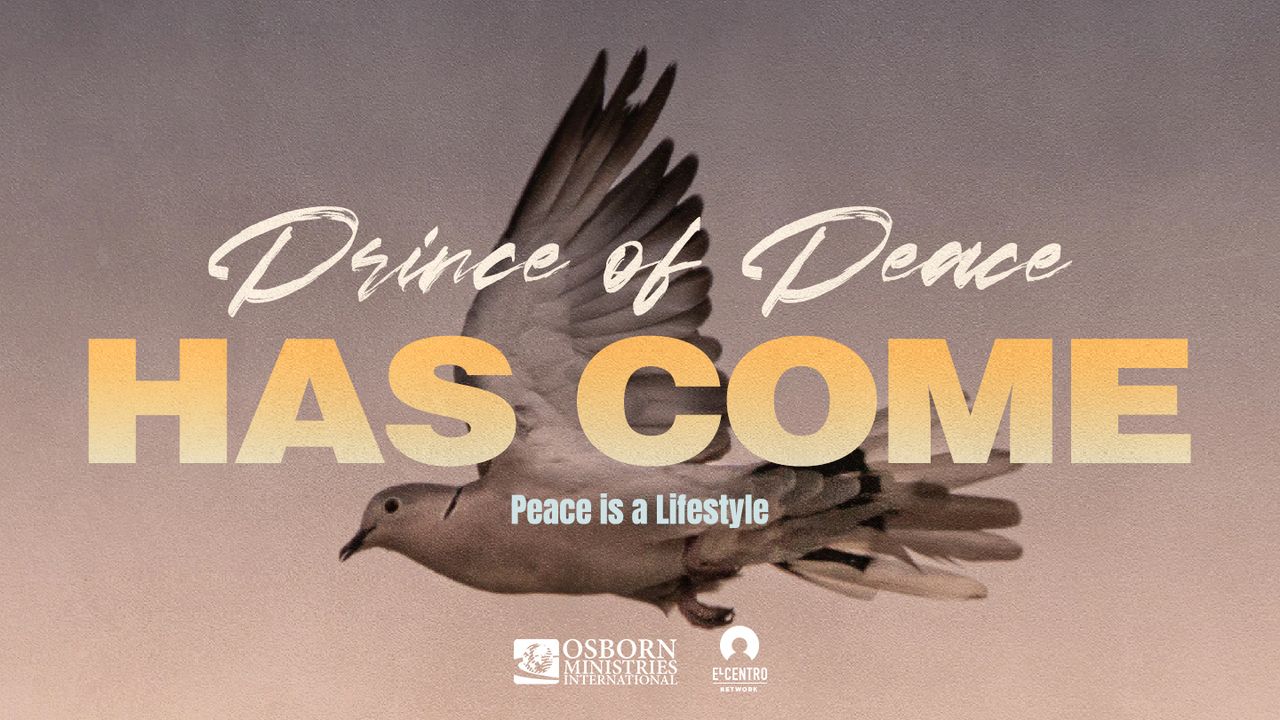The teachings of the Baha’i Faith are replete with profound declarations and prophecies that resonate with the concept of peace and unity. Among these teachings, the phrase “The Prince of Peace Has Come” stands as a pivotal proclamation, embodying the universal aspirations of humanity for harmony and understanding. This article aims to dissect the layers of this phrase, its implications within the framework of Baha’i theology, and the challenges that it presents to both adherents and skeptics alike.
At the heart of Baha’i teachings is the belief that humanity is in a transcendental phase of evolution, moving towards a collective maturity that will culminate in global unity. The concept of “The Prince of Peace” alludes to the manifestation of divine guidance through various religious leaders throughout history. In Baha’i understanding, Baha’u’llah, the founder of the Baha’i Faith, is recognized as the latest in this line of divine Messengers, heralding the advent of a new spiritual and social order.
One might pose the playful question: If the Prince of Peace is indeed among us, why does the world still grapple with violence and discord? Such an inquiry invariably leads us to the crux of Baha’i thought regarding the nature of spiritual and temporal authority. Baha’u’llah, through His teachings, espoused that the realization of peace is not solely the responsibility of divine intervention but requires profound transformation within the human spirit.
This assertion presents an intriguing challenge for believers: How does one reconcile the existence of suffering and turmoil with the proclamation that the Prince of Peace has indeed arrived? The Baha’i teachings offer a multifaceted response. They propose that humanity is endowed with free will, which can either contribute to or detract from the manifestation of peace in society. Consequently, the notion of peace must be actively cultivated through individual and collective efforts, ushering in a time of reconciliation and understanding.
Moreover, Baha’i scriptures elucidate the significance of recognizing the oneness of humanity. Baha’u’llah articulated that a world divided by prejudice—whether based on race, class, or religion—precludes the attainment of lasting peace. The proclamation of a “Prince of Peace” thus serves as a clarion call for a paradigm shift. It beckons followers to transcend their differences and to unite under the banner of a common humanity. This philosophical orientation poses another challenge: Can we, as individuals and communities, embrace this calling amidst a cacophony of divisive ideologies and societal discord?
Among the myriad of teachings, the concept of love as a formative principle emerges conspicuously. Love, in Baha’i thought, is not a mere sentimentality but a driving force that has the potential to eradicate enmity and foster connections among diverse peoples. How can one harness this transformative power of love to actualize the vision of the Prince of Peace? The answer resides in the daily choices individuals make and their willingness to extend acts of kindness and compassion to all, particularly to those considered “other.”
Furthermore, the prophetic nature of “The Prince of Peace Has Come” engenders an anticipatory dimension within the Baha’i worldview. While Baha’u’llah’s advent heralds the dawn of a new epoch, He has also indicated that humanity’s spiritual awakening will be gradual. This gradualism presents challenges, as the impatience often harbored by humanity can lead to disillusionment if immediate change is not perceptible. The Baha’i community is thus encouraged to embody patience and resilience, understanding that the mechanics of spiritual and societal reform require sustained effort.
The symbolism of “peace” also extends to the emphasis on justice within Baha’i thought. Justice is portrayed as a prerequisite for true peace—a concept that is especially relevant in contemporary discussions surrounding social equity and human rights. The challenge posed here is the complexity of achieving justice in a world rife with systemic inequities. Baha’is are urged to become advocates for justice, employing both collective action and personal integrity in their endeavors. In this light, “The Prince of Peace” becomes not just a title, but an aspirational model for commitment to social justice.
In conclusion, the Baha’i teachings surrounding the phrase “The Prince of Peace Has Come” encapsulate a call to action that transcends mere belief. The relationship between spiritual realization and societal transformation emerges as a central theme. Though the presence of discord may challenge the assertion of Baha’u’llah’s prophecy, the potential for peace, love, and justice remains steadfastly rooted within the teachings of the Faith. Ultimately, the embodiment of the Prince of Peace resides within each of us, urging a critical reflection on our roles within the global tapestry of humanity.
Thus, as one contemplates the profound implications of “The Prince of Peace Has Come,” one is urged to not only embrace the teachings but to actively participate in the unfolding narrative of peace—a narrative that awaits the contributions of compassionate and dedicated individuals committed to a better world.
